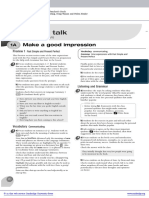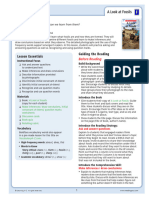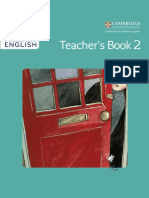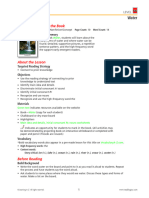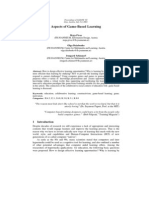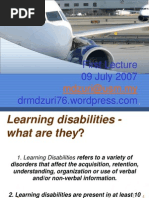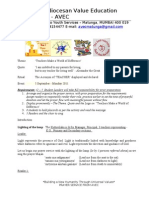0 ratings0% found this document useful (0 votes)
12 viewsRaz Lz202 Selectionfromrobinsoncrusoe LBLP
Raz Lz202 Selectionfromrobinsoncrusoe LBLP
Uploaded by
Bernard2e35yui
Copyright:
© All Rights Reserved
Available Formats
Download as PDF, TXT or read online from Scribd
Raz Lz202 Selectionfromrobinsoncrusoe LBLP
Raz Lz202 Selectionfromrobinsoncrusoe LBLP
Uploaded by
Bernard0 ratings0% found this document useful (0 votes)
12 views3 pages2e35yui
Original Title
Raz Lz202 Selectionfromrobinsoncrusoe Lblp
Copyright
© © All Rights Reserved
Available Formats
PDF, TXT or read online from Scribd
Share this document
Did you find this document useful?
Is this content inappropriate?
2e35yui
Copyright:
© All Rights Reserved
Available Formats
Download as PDF, TXT or read online from Scribd
Download as pdf or txt
0 ratings0% found this document useful (0 votes)
12 views3 pagesRaz Lz202 Selectionfromrobinsoncrusoe LBLP
Raz Lz202 Selectionfromrobinsoncrusoe LBLP
Uploaded by
Bernard2e35yui
Copyright:
© All Rights Reserved
Available Formats
Download as PDF, TXT or read online from Scribd
Download as pdf or txt
You are on page 1of 3
A Selection from Robinson Crusoe Z2
Focus Question:
How do Robinson Crusoes survival skills help him while he is stranded?
Book Summary
Text Type: Fiction/Classic
In this excerpt from the classic novel by Daniel Defoe, English sailor Robinson Crusoe must
survive on a deserted island using his wits and skills. He struggles to procure supplies from his
old ship and works hard to make himself a safe home. The selection has been edited to match
the reading level and is accompanied by illustrations.
The book and lesson are also available for levels Z and Z1.
Guiding the Reading
Lesson Essentials
Before Reading
Instructional Focus
Retell to understand text Build Background
Invite students to share with the rest of the class
Sequence events
adventure stories in which the characters have to
Use the glossary to better understand survive. Ask students to raise their hand if they
the text know anything about Robinson Crusoe and invite
Discern between past, present, and future volunteers to share what they know with the class.
verb tenses Discuss with students what it would be like to be
Identify and use position words shipwrecked on an island. Have students work
with a partner to make a list of items they would
Materials need and actions they would take to survive. Invite
Book: A Selection from Robinson Crusoe students to share their list with the class.
(copy for each student) Introduce the Book
Sequence events, verb tenses, position Give students their copy of A Selection from Robinson
words worksheets Crusoe. Guide them to the front and back covers and
Discussion cards read the title. Have students discuss what they see on
Book quiz the covers. Encourage them to offer ideas as to what
type of book it is (genre, text type, and so on) and
Retelling rubric what it might be about.
Vocabulary Show students the title page. Discuss the
information on the page (title of book, authors
Boldface vocabulary words also appear name, illustrators name).
in a pre-made lesson for this title on
Preview the table of contents on page 3. Remind
VocabularyAZ.com. students that the table of contents provides an
Words to Know overview of the book. Ask students what they
Story critical: deliverance (n.), expect to read about in the book, on the basis
desolate (adj.), diligence (n.), fortified (v.), of what they see in the table of contents.
(Accept all answers that students can justify.)
prospect (n.), provisions (n.)
Enrichment: abated (v.), bilged (v.), Introduce the Reading Strategy: Retell
expostulated (v.), furlong (n.), leagues (n.), Review with students that engaged readers stop now
mortification (n.), pensive (adj.), and then while reading to retell in their mind what is
Providence (n.), render (v.), reprove (v.), happening in the story. Remind them that a retelling
solaced (v.), sustenance (n.) includes as many details as a reader can remember.
Have them practice retelling to a partner the events
Academic vocabulary: classic (adj.), they experienced yesterday. Call on students to share
condition (n.), considers (v.), mentioned (v.), their retelling with the rest of the class.
secure (adj.), solution (n.)
Learning AZ All rights reserved. 1 www.readinga-z.com
A Selection from Robinson Crusoe Z2
Guiding the Reading (cont.) During Reading
Text-Dependent Questions
Introduce the Comprehension Skill:
As students read the book, monitor their understanding
Sequence events with the following questions. Encourage students to
Review that knowing the order in which events support their answers by citing evidence from the book.
occur in a text is important to understanding the
Why does Robinson Crusoe feel destined to die?
story. Remind students that authors use transition
Would you feel the same? (level 3) page 5
words to organize the order. Write the words first,
then, next, after, and finally on the board, and What supplies does Robinson Crusoe retrieve from
review their usage with students. the ship? How are these items useful? (level 2)
pages 810 and 15
Have students work with a partner to discuss
key events from a book they read earlier. Invite What skills does Robinson Crusoe exhibit as he
students to describe the sequence to the rest of returns from the stranded ship, and what dangers
the class, using transition words to create a smooth does he overcome? (level 1) pages 912
telling. Have other students identify the transition Why is money worthless to him now? Why does
words used, and nod their head if the sequence he call it a drug? (level 3) page 15
is in the correct order and makes sense. How does Crusoes new home compare with
the earlier shelters he used? (level 2) multiple pages
Vocabulary
How have Robinson Crusoes survival skills brought
Have students turn to the Words to Know box on him hope for the future? (level 3) multiple pages
the copyright page. Discuss each word with students.
Then, have students turn to the glossary on page 22. Skill Review
Explain that the glossary provides definitions for the Have students place sticky notes on the bottom of
vocabulary words in the story. Point out the use of pages 6, 9, 13, 15, 18, and 22. Ask students to stop
each content word and academic vocabulary word every time they see a sticky note and retell the
in the story, and then use each word in a different events of the story in their own words.
model sentence. Have students work in groups to Model retelling events from page 5 in the story.
create posters for these words. Have them include Think-aloud: When I retell, I use my own words to
on each poster the word and its part of speech, the describe events in the story and include as many
definition, the word in an example sentence, and details as I can remember. On page 5, Robinson
a picture illustrating the meaning of the word. Crusoe began to examine his new surroundings.
Text Features: Glossary At first, he was so miserable at his fate that he just
ran about and thought over the worst possibilities.
Remind students that a glossary defines important
He thought he would die of thirst or hunger or be
vocabulary words specific to the book. Point out
eaten by animals. Then, night fell, and he found fresh
that the words in this glossary can also be found
water to drink. He climbed a thick, bushy tree so he
in boldface print in the text. Have students review
could sleep in safety. How would you retell this page?
each word and its definition and then find the word
in the text. Have students work with a partner to Ask students to stop midway through the story
examine the meaning of the word in the context of (page 11) and retell the first half to a partner.
the story and compare it to the glossary definition. Remind them to use a correct sequence and their
Have student pairs discuss how the glossary aids in own words.
understanding the story. Place on the board the illustrations from pages 20, 6,
15, 8, 19, and 8. Have students discuss with a partner
Set the Purpose the events associated with the illustrations. Ask
Have students read to find out more about how students to sequence the events. Invite a student to
Robinson Crusoe survives on the island. Write the rearrange the images on the board. Have students
Focus Question on the board. Invite students to look discuss with a partner other events from the story and
for evidence in the story to support their answer. where they belong in the sequence. Invite students to
Have students make a small question mark in their describe the full sequence to the rest of the class.
story beside any word they do not understand Model how to complete the sequence events
or cannot pronounce. These can be addressed worksheet. Point out that students only need
in a future discussion. to capture the main points of the story while
sequencing events. Have students record events
in the correct spot on their worksheet and
compare their work with a partners.
Learning AZ All rights reserved. 2 www.readinga-z.com
A Selection from Robinson Crusoe Z2
Guiding the Reading (cont.) Check for understanding: Have students find and
highlight all the verbs on pages 21 and 22. Call on
After Reading students to share a verb with the rest of the class,
and have other students identify the verb tense.
Ask students what words, if any, they marked in
Have students discuss with a partner the reason for
their book. Use this opportunity to model how they
the different verb tenses. Call on students to share
can read these words using decoding strategies and
their thoughts with the rest of the class.
context clues.
Independent practice: Introduce, explain, and have
Skill Review students complete the verb tenses worksheet. If
time allows, discuss their answers.
Graphic Organizer: Sequence events
Review the sequence events worksheet that students Word Work: Position words
completed. Have students refer to their worksheet to Sit on a chair in front of the class, and have
write a complete retelling of the story. Remind them to students write on a separate sheet of paper words
include more details in the retelling, to use transition that describe your location. Repeat this process as
words, and to put the retelling in their own words. you stand behind the chair, beside the chair, and
Have students read their retelling to a partner. Call on so on. Have students share with a partner words
students to read their retelling to the rest of the class. that specifically explain where you were. Call on
students to share a word with the rest of the class,
Comprehension Extension
and record all position words on the board.
Discussion cards covering comprehension skills and
Review with students that position words are words
strategies not explicitly taught with the book are
that describe location. Brainstorm with students
provided to be used for extension activities.
to generate more words to add to the list on the
Response to Focus Question board. A list of position words could include the
Have students cite specific evidence from the book to following: on, over, under, beside, below, above,
answer the Focus Question. (Students should indicate in front, through, in, and out.
that Robinson Crusoe found food, water, security, and Write the following sentence on the board and
a place to watch for rescue ships and that he relied on read it aloud with students: Robinson Crusoe fell
his intelligence, courage, and perseverance to survive.) asleep inside his hammock. Have students point to
the position word, inside. Have students write the
Comprehension Checks sentence on a separate sheet of paper and rewrite
Book quiz Retelling rubric it several times, inserting new position words each
time. Have students discuss with a partner the
changes in meaning of each sentence.
Book Extension Activities Check for understanding: Have students write five
original sentences using position words, referring
Build Skills to the board as necessary. Call on students to share
Grammar and Mechanics: Verb tenses a sentence with the rest of the class, and have
Write the following sentences on the board and other students identify the position word. Invite
read them aloud with students: This threw me into volunteers to alter the sentence by replacing the
such terrible agonies that for a while I ran about position word with a new one.
like a madman. At night, they always come out for
their prey. Have students identify the verbs, and call Independent practice: Introduce, explain, and have
on students to underline the verbs on the board. students complete the position words worksheet.
If time allows, discuss their answers
Have students work with a partner to determine
the tense of each verb. Demonstrate to students Connections
how to change a verb to past tense, present tense, See the back of the book for cross-curricular
and future tense using the verb laugh. Remind extension ideas.
students that they use the context of the sentence,
along with the verbs written form, to determine
the tense. Have students practice forming all three
tenses of the verbs kick and play. Review irregular
verb forms.
Remind students that stories generally maintain
constant verb tenses. Have students discuss with
a partner reasons a story may shift verb tense,
and then discuss their ideas as a class (a character
is thinking, flashbacks, and so on).
Learning AZ All rights reserved. 3 www.readinga-z.com
You might also like
- Primary Progression Test - Stage 6 English Paper 1 PDFDocument12 pagesPrimary Progression Test - Stage 6 English Paper 1 PDFBernard85% (46)
- 7 8 Non Verbal Reasoning Bond 1st Level Paper PDFDocument8 pages7 8 Non Verbal Reasoning Bond 1st Level Paper PDFBernard100% (2)
- Face2face Advanced Teachers Book Sample Pages PDFDocument10 pagesFace2face Advanced Teachers Book Sample Pages PDFFatema Salah100% (4)
- Gold Advanced Progress Test 2Document6 pagesGold Advanced Progress Test 2Bernard60% (5)
- Celta Online CourseDocument5 pagesCelta Online CourseRulz Andrei71% (7)
- Vocabulary in Action Level FDocument52 pagesVocabulary in Action Level FBernard0% (2)
- PR English Yr4 2014Document21 pagesPR English Yr4 2014Bernard100% (1)
- Te Grade 4 - Intro - UnknownDocument531 pagesTe Grade 4 - Intro - UnknownnglokNo ratings yet
- Program of Study Outcomes: Lesson Title/Focus Class #: Grade 1 (60 Minute Class) Course Language ArtsDocument4 pagesProgram of Study Outcomes: Lesson Title/Focus Class #: Grade 1 (60 Minute Class) Course Language Artsapi-533472774No ratings yet
- Question Stem Ccs S GR 1Document5 pagesQuestion Stem Ccs S GR 1BernardNo ratings yet
- Tesol Lesson Plan 1Document10 pagesTesol Lesson Plan 1api-289422703No ratings yet
- Sample Persuasive Essay - UniformsDocument3 pagesSample Persuasive Essay - UniformsThiha NaungNaungNo ratings yet
- Guiding The Reading Lesson EssentialsDocument3 pagesGuiding The Reading Lesson EssentialszeenatkerawalaNo ratings yet
- Raz lc51 Manykindsofdinosaurs LBLPDocument3 pagesRaz lc51 Manykindsofdinosaurs LBLPlorieannparcocorpuz25No ratings yet
- Raz ld56 Bestfriendsqandu LBLPDocument3 pagesRaz ld56 Bestfriendsqandu LBLPSaulus SaulusNo ratings yet
- Guiding The Reading Lesson EssentialsDocument3 pagesGuiding The Reading Lesson EssentialszeenatkerawalaNo ratings yet
- Raz Laa86 Onairplane LblpDocument3 pagesRaz Laa86 Onairplane Lblpmarchiue0905No ratings yet
- Cinderella WorksheetDocument3 pagesCinderella WorksheetJhonathan JustinoNo ratings yet
- Raz Lo24 Lastdayofschool LBLPDocument3 pagesRaz Lo24 Lastdayofschool LBLPEenee ChultemjamtsNo ratings yet
- Raz Lz26 Biomimicry LBLPDocument3 pagesRaz Lz26 Biomimicry LBLPBernard ChanNo ratings yet
- Raz lx27 Laborsofhercules LBLPDocument3 pagesRaz lx27 Laborsofhercules LBLPmaryapple mondigoNo ratings yet
- Raz lf57 Lookatfossils LBLPDocument3 pagesRaz lf57 Lookatfossils LBLPSarah ZhaoNo ratings yet
- Guiding The Reading Lesson EssentialsDocument3 pagesGuiding The Reading Lesson EssentialsNathaly NatalyNo ratings yet
- RC-SFR 2 LessonplansDocument13 pagesRC-SFR 2 LessonplansAlexa Alejandra Flores VergaraNo ratings yet
- Raz lf53 Areyoufrombrazil LBLPDocument3 pagesRaz lf53 Areyoufrombrazil LBLPSarah ZhaoNo ratings yet
- Raz Laa87 Animalsnap LBLPDocument3 pagesRaz Laa87 Animalsnap LBLPhilary.chenNo ratings yet
- Raz La43 Fishsees LBLPDocument3 pagesRaz La43 Fishsees LBLPPOPENo ratings yet
- Raz La68 Moveit LBLPDocument3 pagesRaz La68 Moveit LBLPSarah ZhaoNo ratings yet
- Raz Laa70 Off LblpDocument3 pagesRaz Laa70 Off Lblpmarchiue0905No ratings yet
- Raz La59 Idream LBLPDocument3 pagesRaz La59 Idream LBLPSarah ZhaoNo ratings yet
- Raz Lg41 Tasteblood LBLPDocument3 pagesRaz Lg41 Tasteblood LBLPdoris01814No ratings yet
- Raz Lu26 Adventureinlondon LBLPDocument3 pagesRaz Lu26 Adventureinlondon LBLPSarah ZhaoNo ratings yet
- Raz Laa68 Thesebirds LblpDocument3 pagesRaz Laa68 Thesebirds Lblpmarchiue0905No ratings yet
- The Little Turtle: First ReadingDocument8 pagesThe Little Turtle: First ReadingPraise PiusNo ratings yet
- b6 Week6 Notes Term 3Document14 pagesb6 Week6 Notes Term 3Mohammed PatrickNo ratings yet
- Raz lf54 Areyouokay LBLPDocument3 pagesRaz lf54 Areyouokay LBLPSarah ZhaoNo ratings yet
- Guiding The Reading Lesson Essentials: Brainstorm BearDocument3 pagesGuiding The Reading Lesson Essentials: Brainstorm BearMaRiPoSa992No ratings yet
- Save The Frogs UpdateDocument12 pagesSave The Frogs Updatececildous1317No ratings yet
- PREPARE - 5 - Literature - 55 - Teacher's NotesDocument2 pagesPREPARE - 5 - Literature - 55 - Teacher's NotesMai Hoàng Thị NgọcNo ratings yet
- Robinson Crusoe Lesson PlanDocument5 pagesRobinson Crusoe Lesson PlanIssac NewtonNo ratings yet
- 978-0-00-814765-5 Collins International Primary English Teacher's Guides - Teacher's Book 2Document10 pages978-0-00-814765-5 Collins International Primary English Teacher's Guides - Teacher's Book 2Areeba NazimNo ratings yet
- ExcerptDocument10 pagesExcerptkavitha rajeshNo ratings yet
- Pronouns PDFDocument11 pagesPronouns PDFRicardo Chersoni100% (2)
- Guiding The Reading Lesson EssentialsDocument3 pagesGuiding The Reading Lesson EssentialsHasleen BeniNo ratings yet
- Raz lg29 Rockhunting LPDocument6 pagesRaz lg29 Rockhunting LPsiLe FeingaNo ratings yet
- Kinder Guided Reading Week 4Document3 pagesKinder Guided Reading Week 4api-373629977No ratings yet
- Raz lf52 Atmovies LBLPDocument3 pagesRaz lf52 Atmovies LBLPSarah ZhaoNo ratings yet
- Raz Lu26 Craftyescape LBLPDocument3 pagesRaz Lu26 Craftyescape LBLPSarah ZhaoNo ratings yet
- Raz Lx09 Upfromslavery LPDocument5 pagesRaz Lx09 Upfromslavery LPLesanne Mc Intosh-WrightNo ratings yet
- Raz Laa74 Black LBLPDocument3 pagesRaz Laa74 Black LBLPlibin linNo ratings yet
- The Frog Prince: First Session (Pages 2-9)Document8 pagesThe Frog Prince: First Session (Pages 2-9)Aslia CadalNo ratings yet
- Stage 9 Unit 1 TR NotesDocument7 pagesStage 9 Unit 1 TR NotesRima MarNo ratings yet
- GES Lesson Plan Notes Basic 5 Week 5 Term1Document17 pagesGES Lesson Plan Notes Basic 5 Week 5 Term1Elizabeth DerbanNo ratings yet
- Week 3Document3 pagesWeek 3cxtxn78vcyNo ratings yet
- Ort BCK Submarine TnsDocument3 pagesOrt BCK Submarine TnsMuhammad Mudassar JavedNo ratings yet
- Raz Lu26 Animaldiscoveries LPDocument8 pagesRaz Lu26 Animaldiscoveries LPSarah ZhaoNo ratings yet
- Stewart 2018Document4 pagesStewart 2018933-10-vyvyanNo ratings yet
- Grade 1 Reading and Literacy Q2 WK8Document9 pagesGrade 1 Reading and Literacy Q2 WK8Maybelle Ann Llavan BumatayNo ratings yet
- Raz Laa47 Water LpDocument5 pagesRaz Laa47 Water Lpmarchiue0905No ratings yet
- Raz Laa13 Under LpDocument5 pagesRaz Laa13 Under Lpmarchiue0905No ratings yet
- Noise in the Night_00Document6 pagesNoise in the Night_00ssweigerNo ratings yet
- 754 LessonDocument21 pages754 Lessonapi-534568579No ratings yet
- Plan Resources: DifferentiationDocument4 pagesPlan Resources: DifferentiationsaidaturlanovaNo ratings yet
- IndexDocument8 pagesIndexmunsaf.aliNo ratings yet
- English Unit Plan Year6 PYP EnglishDocument13 pagesEnglish Unit Plan Year6 PYP EnglishMd. Abidur Rahman PrantoNo ratings yet
- Raz La32 Whatliveshere LPDocument5 pagesRaz La32 Whatliveshere LPLesanne Mc Intosh-WrightNo ratings yet
- Sample Lesson Notes - Week 11: Basic FiveDocument13 pagesSample Lesson Notes - Week 11: Basic FiveStephen Rashid DaudaNo ratings yet
- Weekly Scheme of Learning-Week 8: 10 MinsDocument7 pagesWeekly Scheme of Learning-Week 8: 10 MinsJames NUGBANo ratings yet
- English Alternativepaper Annual Paper2 2016Document12 pagesEnglish Alternativepaper Annual Paper2 2016BernardNo ratings yet
- 2016 HGP P6 EL Prelim Answer Key (Kersern August Lesson 1)Document4 pages2016 HGP P6 EL Prelim Answer Key (Kersern August Lesson 1)BernardNo ratings yet
- 2018 P1 Eng Full Year Full SetDocument281 pages2018 P1 Eng Full Year Full SetBernardNo ratings yet
- Vocabulary in Action Level HDocument52 pagesVocabulary in Action Level HBernard50% (4)
- Grade5readingreleased PDFDocument30 pagesGrade5readingreleased PDFBernard100% (1)
- 7 English Sample Paper 3 Owl Tutors 2016 PDFDocument13 pages7 English Sample Paper 3 Owl Tutors 2016 PDFBernardNo ratings yet
- PR English Yr5 2014Document21 pagesPR English Yr5 2014BernardNo ratings yet
- Gold Advanced Progress Test 5Document6 pagesGold Advanced Progress Test 5BernardNo ratings yet
- Gold Advanced Progress Test 3Document7 pagesGold Advanced Progress Test 3Bernard0% (1)
- Primary Checkpoint - Science (0846) October 2016 Paper 2 PDFDocument24 pagesPrimary Checkpoint - Science (0846) October 2016 Paper 2 PDFdinakarc80% (5)
- STAAR TestRead g4 PDFDocument48 pagesSTAAR TestRead g4 PDFBernardNo ratings yet
- Gold Advanced Progress Test 3Document7 pagesGold Advanced Progress Test 3Bernard0% (1)
- Arizona's Instrument To Measure Standards (AIMS) Reading Sample Test Grade 6Document18 pagesArizona's Instrument To Measure Standards (AIMS) Reading Sample Test Grade 6Bernard0% (1)
- Literature in English Test: Practice BookDocument84 pagesLiterature in English Test: Practice BookBernardNo ratings yet
- HandoutsCombined2 15 13Document95 pagesHandoutsCombined2 15 13BernardNo ratings yet
- P6 English CA1 2015 CHIJ ST Nicholas Exam Papers PDFDocument23 pagesP6 English CA1 2015 CHIJ ST Nicholas Exam Papers PDFBernardNo ratings yet
- Overtaking: (Very Important)Document2 pagesOvertaking: (Very Important)BernardNo ratings yet
- MFMS - Employment and ActivitiesDocument4 pagesMFMS - Employment and ActivitiesMartin Francis Moverley SmithNo ratings yet
- Structured Oral Language Practice RoutinesDocument2 pagesStructured Oral Language Practice Routinesapi-256577734No ratings yet
- Analysis For Code of Ethics (Teaching Profession)Document2 pagesAnalysis For Code of Ethics (Teaching Profession)Liza Dahan Andea-SaayoNo ratings yet
- Column, We Want ExtraDocument1 pageColumn, We Want ExtraDon Angelo De GuzmanNo ratings yet
- IB School LibraryDocument3 pagesIB School LibraryRoxy YuenNo ratings yet
- Unc Case StudyDocument2 pagesUnc Case Studyapi-271077253No ratings yet
- DLPDocument2 pagesDLPEunice Junio NamionNo ratings yet
- Hmef5073 V2Document10 pagesHmef5073 V2Octavius GuNo ratings yet
- Worksheet 1 - Diagnostic TestDocument3 pagesWorksheet 1 - Diagnostic TestTinkerbell KlingNo ratings yet
- Vidyasagar University Act, 1981 PDFDocument52 pagesVidyasagar University Act, 1981 PDFLatest Laws TeamNo ratings yet
- Praxis AnalysisDocument3 pagesPraxis Analysisapi-357662860No ratings yet
- Eslcslesson PDFDocument4 pagesEslcslesson PDFItalo Aarón Milla LozanoNo ratings yet
- Reynoso Ted 633 Assignment 2bDocument7 pagesReynoso Ted 633 Assignment 2bapi-344886461No ratings yet
- Supplement 2 G Eclipse Effec It Ve TeachingDocument6 pagesSupplement 2 G Eclipse Effec It Ve Teachingnov0No ratings yet
- Aspects of Game Based LearningDocument10 pagesAspects of Game Based LearningGa AgNo ratings yet
- Apa Itu Masalah PembelajaranDocument59 pagesApa Itu Masalah PembelajaranNazhiff AzizanNo ratings yet
- 10 Steps in Making IepDocument5 pages10 Steps in Making IepCh. Asad NisarNo ratings yet
- Math Enhancement Summary ReportDocument10 pagesMath Enhancement Summary ReportMark GuevarraNo ratings yet
- Experience ReflectionDocument3 pagesExperience Reflectionapi-494417537No ratings yet
- Teacher's Day Prayer Service 5 Sept 7-11-12Document6 pagesTeacher's Day Prayer Service 5 Sept 7-11-12Lowe Glenford100% (2)
- Benefits of InclusionDocument13 pagesBenefits of InclusionDominick Repole100% (1)
- Chapter 1 and 2Document16 pagesChapter 1 and 2WarnnerDaminarAminNo ratings yet
- YouTube As A Teacher Training Tool Information and Communication Technology As A Delivery Instrument For Professional DevelopmentDocument11 pagesYouTube As A Teacher Training Tool Information and Communication Technology As A Delivery Instrument For Professional DevelopmentErsa Izmi SafitriNo ratings yet
- Electromagnetic MathDocument107 pagesElectromagnetic MathHawksmoor188850% (2)
- Writing Lesson PlanDocument10 pagesWriting Lesson PlanBeverlyCortezNo ratings yet
- Community Relations PlanDocument18 pagesCommunity Relations Planapi-230544776No ratings yet
- Events: The Railway Children by Edith Nesbit: Event/events That Teach/es You A LessonDocument2 pagesEvents: The Railway Children by Edith Nesbit: Event/events That Teach/es You A LessonAnifahIberahimNo ratings yet


